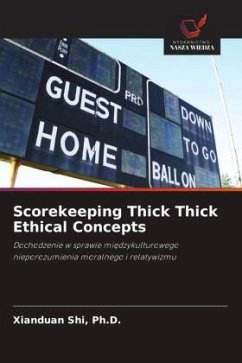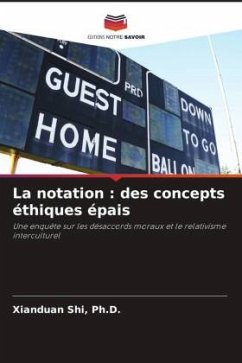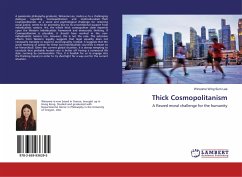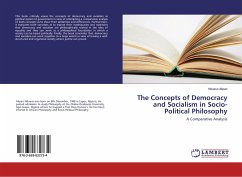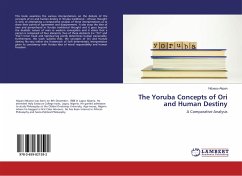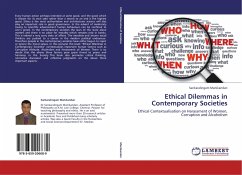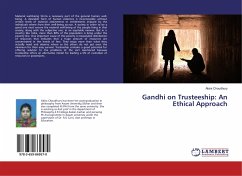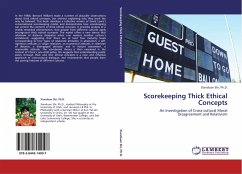
Scorekeeping Thick Ethical Concepts
An Investigation of Cross-cultural Moral Disagreement and Relativism
Versandkostenfrei!
Versandfertig in 6-10 Tagen
39,99 €
inkl. MwSt.

PAYBACK Punkte
20 °P sammeln!
In the 1980s, Bernard Williams made a number of plausible observations about thick ethical concepts, but without explaining why they work the way he believed. This book develops a collective version of David Lewis s conversational scorekeeping model, and demonstrates how scorekeeping can control the contents of thick ethical concepts. It provides analysis of a widely remarked phenomenon, that people from different cultures apply incongruent thick ethical concepts. The model offers a new stance that relativism of distance dissipates when one masters another culture s scoreboard, suggesting that...
In the 1980s, Bernard Williams made a number of plausible observations about thick ethical concepts, but without explaining why they work the way he believed. This book develops a collective version of David Lewis s conversational scorekeeping model, and demonstrates how scorekeeping can control the contents of thick ethical concepts. It provides analysis of a widely remarked phenomenon, that people from different cultures apply incongruent thick ethical concepts. The model offers a new stance that relativism of distance dissipates when one masters another culture s scoreboard, suggesting that there are at least four maturity levels corresponding to four types of relativistic attitudes: in absolutism, a self-righteous attitude; in vulgar relativism, an ecumenical attitude; in relativism of distance, a disengaged attitude; and in mature assessment, a responsible attitude. The scoreboard theory is then examined in the context of China s one-child policy. Shi suggests that understanding public policy through thick and thin ethical concepts is a new and effective approach to cross-cultural dialogue, and recommends that people learn the scoring histories of different cultures.



